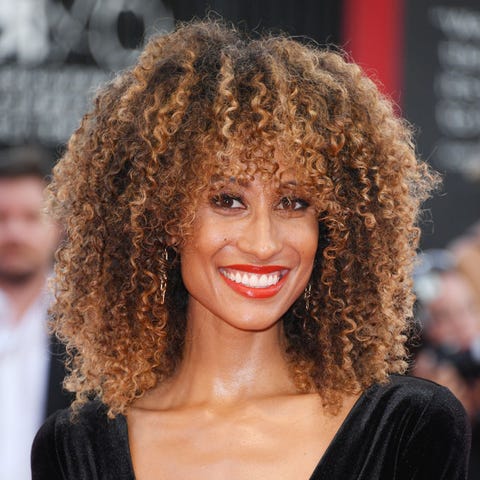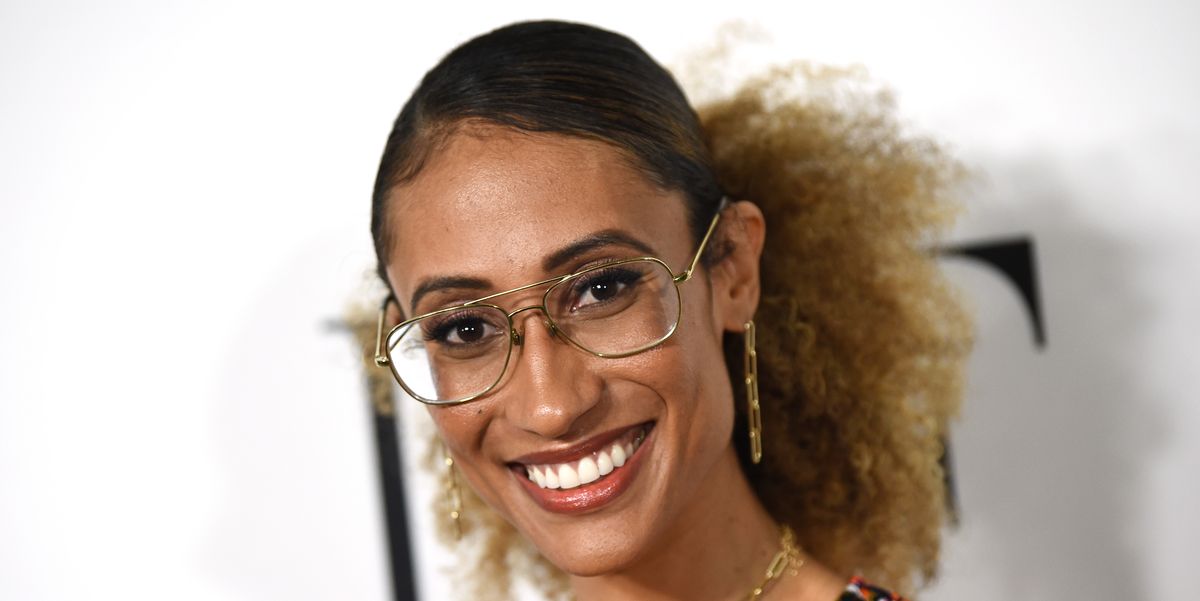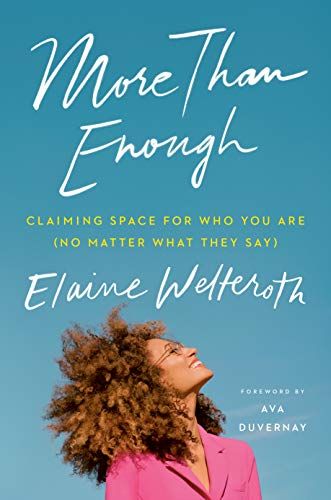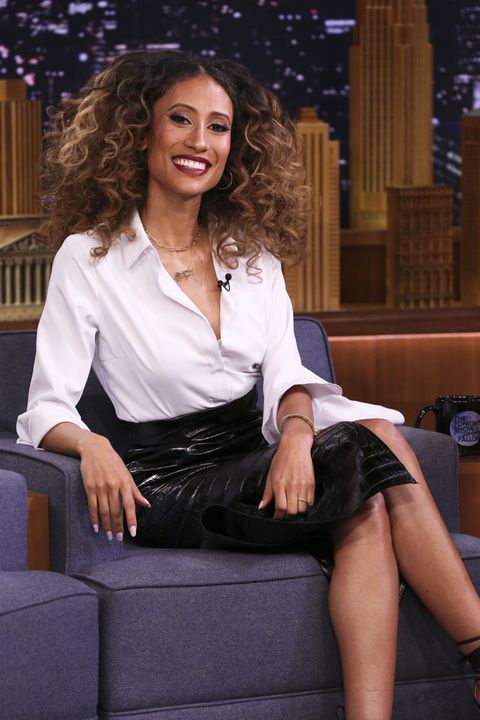
Daniele VenturelliGetty Images
By this point you probably know the Elaine Welteroth story. If you don’t, here’s a quick synopsis: At 29, Welteroth became the youngest editor-in-chief in Teen Vogue‘s history, and only the second Black woman to hold the title at a Condé Nast publication. She, with the help of a young staff including website director Phillip Picardi and creative director Marie Suter, transformed the brand into a politically engaged space where issues of race, diversity, and sexuality were commonly discussed. Since then, Welteroth has left Teen Vogue, starred as a judge on Project Runway (scoring another accolade as the first black judge to do so), and written her memoir, More Than Enough: Claiming Space for Who You Are (No Matter What They Say). Back from book tour, I caught up with Welteroth to talk gaining respect when you’re a Shonda Rhimes-coined FOD (First, Only, Different) and leaving the publishing world behind.
This feels like a memoir-meets-advice book. Why did you choose that format?
I don’t think of it as an advice book actually. I was sort of intentional about not writing an advice book. I think the way that we learn best is through storytelling. Not to sound cliché , but I think it’s true that when women tell their truth, it wakes us up to our own. So my only goal in writing this book was to tell the truths that are left out of the “success stories” you read about on the internet or that you scroll through on Instagram. In this age of Instagram, you’re only ever getting the filtered version of the story and that’s detrimental when it’s not balanced out by the truth. I wrote the book that I needed or I wish I would have had when I was trying to figure out my place in the world.
How did you decide which stories to share and which ones to leave out?
The stories that I was going to tell in my book were already crystallized in my mind, so I just had to make space to let them flow onto the page. There was a certain flow to the process, which I can only attribute to sort of feeling like it needed to come out of me.
It’s interesting when people who lead such eventful lives can narrow it down to a collection of five or six stories.
Yeah, basically any stand out moment in my life that was pivotal is in this book. Unless it was something that just didn’t feel necessary to share. What I tried to focus on were universal truths for women like me—meaning black women, women of color, young female leaders, young leaders, anyone who has ever felt marginalized, anyone who’s ever felt like they had a dream that was bigger than the small town they grew up in.
A key line in your book is that when the world tells you to shrink, expand. But for people who read the book and walk away like, “I still don’t really know where to start to expand,” what advice do you have for them?
I would want to ask more questions before giving answers, but I think we usually know when, whether it’s a relationship or a job, when it’s time to walk away because it’s no longer serving you. I think the work is in trusting that voice and allowing it to guide the way you move through the world. When I’ve had challenges in that regard, I try to think about who I’m doing it for and I try to remember that the mission is so much bigger than me and that helps me persevere. When you reframe things and imagine that you’re doing it for the next woman who’s coming behind you, it puts that fire in your belly.
Another key part of the book touches upon being what Shonda Rhimes calls an FOD: First, only, different. Every time you realize you are the first or the only or the different, how does that make you feel?
It’s a mixed bag. First of all, you never apply for the job of being first. You just apply for the job and then you learn later, in headlines when it makes history, and then that’s when you recognize the weight of what it means to be first. Maybe I’m an eternal optimist, but I’ve always very quickly transitioned from feeling the weight of the responsibility to seeing the opportunity in it. And not just for me but for so many people who might not otherwise have representation in that space. That’s when the work gets exciting. I, like many women of color in corporate America, spent a lot of my career kind of just trying to blend in and play by the rules. But when you recognize that no matter how many rules you follow, the game is going to be played differently for someone like you because you’re a different kind of player—use it to your advantage and make it your superpower. I think that’s when you can really do your most transformative work.
Oftentimes when you are an FOD in these work environments, the task of commanding respect can be especially difficult. How did you handle that?
We can talk for an hour about that. It takes time to build trust and to gain respect. One of the things that maybe doesn’t get captured when we see these headlines around my career is that I actually worked at Teen Vogue for six years in a different role before I was promoted. Those were the critical foundation laying years where I was building that trust and respect and credibility in the industry. And while it did happen relatively quickly in the scheme of things, it definitely didn’t happen overnight and it was not easy for me to find my voice and to use it to amplify the voices of people who haven’t been heard for too long in mainstream media. But I think one sort of tactical piece of advice is to identify allies in the office who can help you do your best work. Who can be a sounding board and also an advocate when you’re not around to help advance your ideas. I think that was crucial. I get a lot of credit for the work that happened at Teen Vogue, but I couldn’t have done it by myself. I did it with an extraordinary team of young people who were aligned in this vision that what Teen Vogue could mean in a really critical turning point in our country.
What do you think was the hardest part of finding your voice?
Learning to overcome my own self doubt and my own imposter syndrome. I think sometimes the voice in your head that criticizes you or doubts your ability is your own voice. It’s coming from inside your own head. Ruling and managing that narrative is the most important work of all. Especially for women, because there’s a reason that voice is there and it’s not your fault. It’s the result of generations of conditioning that have made us feel that we don’t belong in these divisions of power.
It’s been a year and a half since you left Teen Vogue. What have you learned about yourself? And for all of us who are still in it, what does life look like after publishing?
Wow, I have not once looked back. Not once. Not for a millisecond. And I think that means it was the right time to make this move. And I think hopefully that is reassuring for somebody out there who’s thinking of making a move and feels strongly that it is the right time but they’re worried about regretting it later. Like I have zero regrets. People get stuck when they feel fear because they think maybe it’s a sign that they’re not ready. But I think that anything that you do that’s worth doing will elicit fear. It’s part of the process, and I think you just have to make friends with fear—that’s advice that Ava Duvernay gave me— when she swooped in and mentored me during that actual career transition, and she’s right. You gotta make friends with fear and learn how to dance with fear, and without fail, what I’ve learned and what I’ve seen, is that your most transformative work will happen on the other side of fear. But you gotta make the jump.


